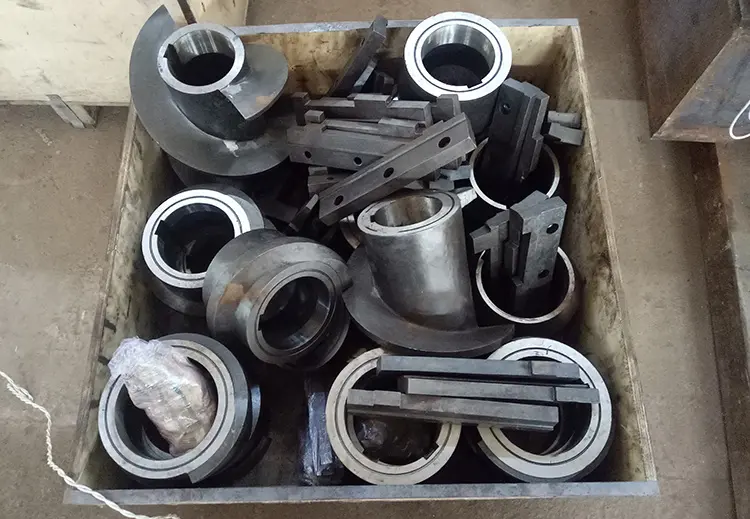ធ្នូ . 04, 2024 20:19 Back to list
mustard oil refined machine factories
Mustard Oil Refined Machine Factories An Overview
Mustard oil has been a staple in kitchens across South Asia for centuries, revered for its distinct flavor and health benefits. In recent years, the demand for refined mustard oil has surged, leading to the establishment of numerous factories dedicated to the extraction and refinement of this valuable commodity. This article explores the significance of mustard oil refined machine factories, their operational processes, and the impact they have on the industry and consumer health.
The Growing Demand for Mustard Oil
Mustard oil is derived from the seeds of the mustard plant, particularly Brassica juncea and Brassica nigra. It is celebrated not only for its culinary uses but also for its potential health benefits, including anti-inflammatory properties and high omega-3 fatty acid content. The increase in health-conscious consumers is driving up the demand for refined mustard oil, which is considered more palatable and versatile for cooking compared to its unrefined counterpart.
The Role of Factories in Oil Refining
Mustard oil refined machine factories play a crucial role in the production of high-quality oil. The refining process is critical for improving the oil's flavor, removing impurities, and extending its shelf life. Generally, the refining process consists of several key stages
1. Extraction The first step involves the extraction of oil from mustard seeds. This can be done using traditional methods or modern mechanical techniques such as expellers, which use pressure to extract oil efficiently.
2. Degumming Once extracted, the crude mustard oil contains gums and phospholipids that need to be removed. This is accomplished through a process called degumming, which usually involves adding hot water or acid to separate the impurities from the oil.
3. Neutralization After degumming, the oil undergoes neutralization to eliminate free fatty acids, which can affect taste and stability. An alkali solution is added, followed by a washing process.
4. Bleaching To improve the oil’s color and taste, bleaching agents are used to remove pigments and other unwanted substances, resulting in a light-colored oil.
mustard oil refined machine factories

5. Deodorization The final step is deodorization, which involves heating the oil under vacuum to eliminate any volatile compounds that contribute to strong odors.
The machinery used in these processes is highly specialized, with advancements in technology leading to more efficient and environmentally friendly operations. Automated systems can monitor and control various parameters, ensuring consistent quality and adherence to safety standards.
Economic Implications
The establishment of mustard oil refined machine factories contributes significantly to local economies. These factories create job opportunities in both urban and rural areas, supporting farmers who grow mustard seeds. The increased demand for mustard oil also stimulates agricultural production, promoting sustainable practices and crop diversification.
Moreover, such factories can enhance the export potential of mustard oil, allowing countries to partake in the global market. India, for example, is one of the largest producers of mustard oil, and refined factories play a key role in ensuring that the product meets international quality standards.
Health and Safety Considerations
While mustard oil is beneficial, refined oil must adhere to strict health regulations to ensure its safety for consumption. Consumers are becoming increasingly aware of the importance of food safety, prompting factories to implement quality control measures. This includes regular testing for contaminants and ensuring compliance with food safety standards set by regulatory bodies.
Additionally, efforts to educate consumers about the differences between refined and unrefined mustard oil are essential. While refined oil is often seen as healthier due to its lower levels of erucic acid, unrefined oil retains more of its natural nutrients. Hence, consumers should be well-informed about their choices to make the best decisions for their health.
Conclusion
Mustard oil refined machine factories are integral to the production and refinement of one of the most popular cooking oils in South Asia. They not only contribute to the economy by creating jobs and boosting agricultural production but also ensure that consumers have access to high-quality, safe cooking oil. As demand continues to rise, these factories will play an increasingly important role in meeting consumer needs, fostering sustainable agricultural practices, and enhancing the global mustard oil market.
-
Leading Food Oil Refined Unit Companies | Quality & Efficient Solutions
NewsAug.27,2025
-
Expert Food Oil Refined Unit Companies | Advanced & Efficient Refining
NewsAug.26,2025
-
Food Oil Refined Machine Companies: High-Efficiency Oil Refining
NewsAug.25,2025
-
Popular Commercial Oilseed Crushing Machinery | High-Yield Oil Expeller Press
NewsAug.24,2025
-
Food Oil Refined Unit Companies: Leading Manufacturers & Exporters
NewsAug.23,2025
-
Expert Oil Filter Machine Service & Solutions | Quality & Reliability
NewsAug.22,2025
